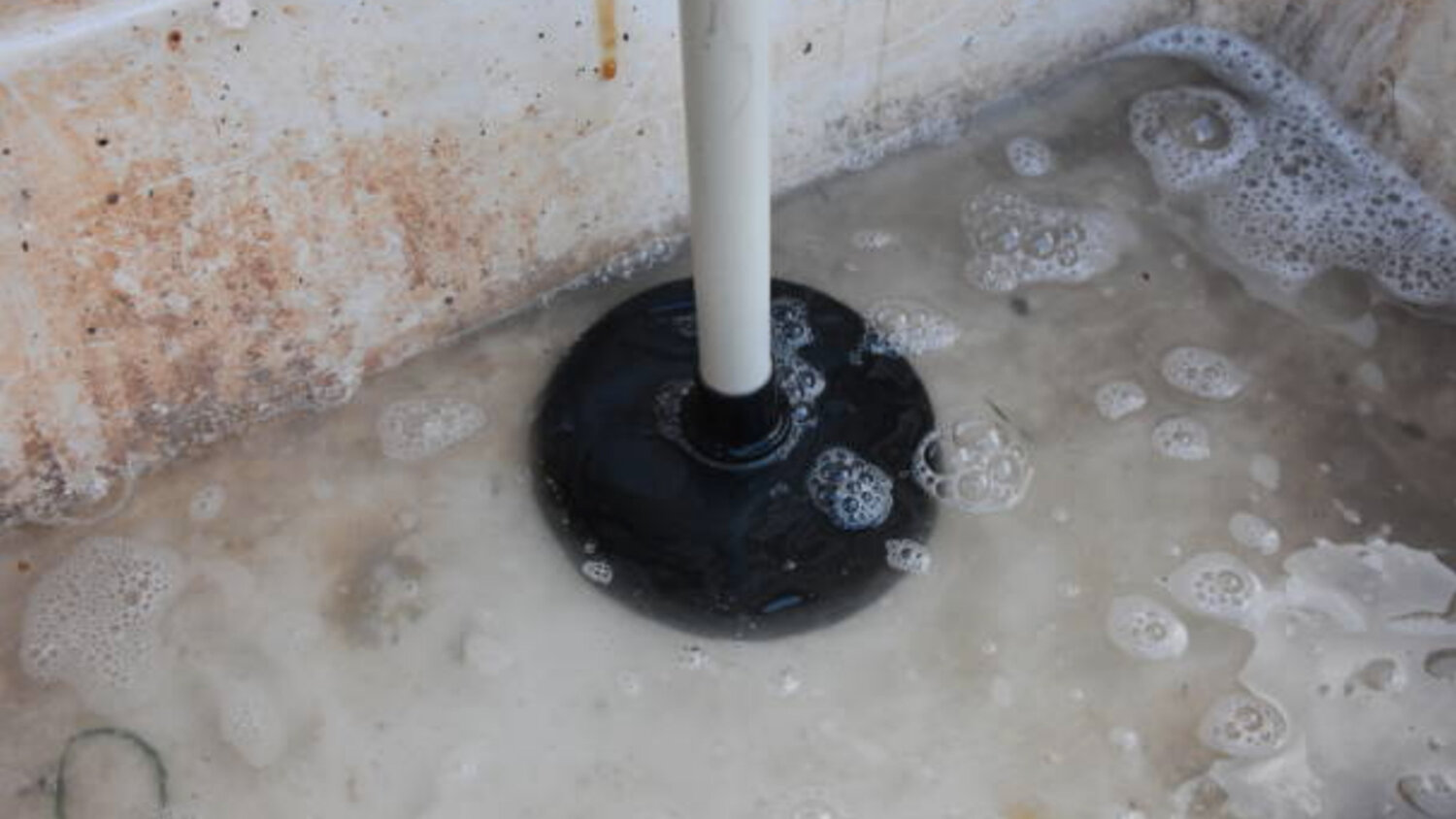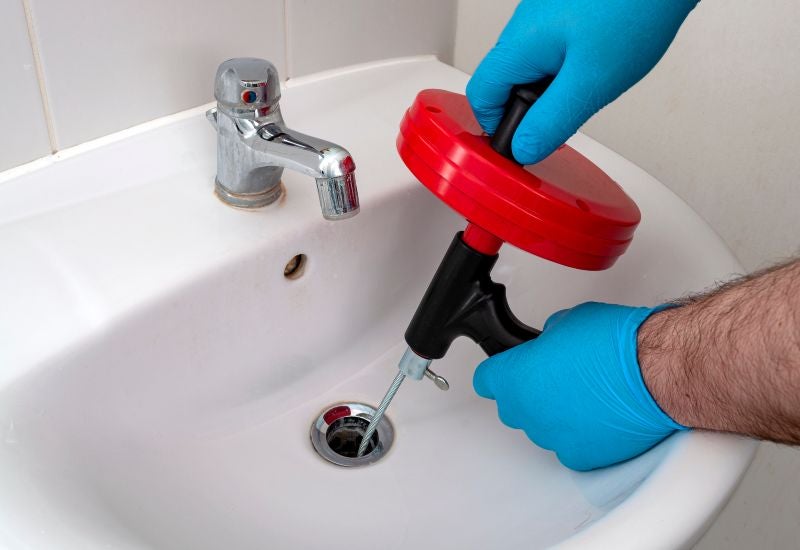Efficient Plungers and Drain Cleaners Strategies: Key Guidelines
Efficient Plungers and Drain Cleaners Strategies: Key Guidelines
Blog Article
Are you currently trying to find selective information around Tips on How to Effectively Use a Plunger?

Introduction
Correct maintenance of household drains pipes is vital for avoiding obstructions and making sure smooth water flow. Among the key tools in every homeowner's toolkit is the plunger, along with different drainpipe cleaners created to tackle stubborn obstructions effectively. This write-up explores just how to utilize bettors and drain cleansers effectively to maintain your drains pipes streaming openly.
Section 1: Comprehending Bettors
Sorts of Plungers
There are several kinds of bettors available, each created for various types of drains and blocks. One of the most common types include mug bettors, flange bettors, and accordion bettors.
How Plungers Work
Plungers service the concept of developing stress and suction to displace obstructions. When properly applied over a drain, they create a vacuum that can take out debris or separate blockages.
Selecting the Right Plunger
Selecting the appropriate plunger depends on the sort of drain and the nature of the clog. Mug plungers are ideal for sinks and bathtubs, while flange plungers are much better suited for commodes because of their layout.
Typical Blunders with Plungers
Staying clear of these errors makes certain efficient plunging: inappropriate seal around the drain, inadequate pressure, and not clearing bordering particles.
Section 2: Utilizing Plungers Properly
Preparation
Before plunging, make sure the bettor covers the drainpipe completely and develops a tight seal. Clear any kind of noticeable particles around the drain opening.
Method
Start with mild plunging activities to build suction. Boost stress gradually, utilizing a constant rhythm. Repeat as required up until the drainpipe clears.
Troubleshooting Tips
If diving does not function, try adjusting the seal, applying petroleum jelly for a far better seal, or making use of a various type of plunger.
Section 3: Comprehending Drain Cleansers
Kinds Of Drainpipe Cleaning Company
Drain pipes cleansers can be chemical or chemical. Chemical cleansers utilize solid chemicals to dissolve blockages, while enzymatic cleansers make use of natural enzymes to break down organic matter.
Exactly How Drainpipe Cleansers Job
Chemical cleaners respond with obstructions to dissolve them, while chemical cleansers break down natural products like hair and oil without damaging pipelines.
Safety Considerations
Always put on handwear covers and eye defense when making use of chemical drainpipe cleaners. Make sure appropriate ventilation and follow manufacturer guidelines carefully.
Eco-Friendly Alternatives
Take into consideration making use of vinegar and baking soda or enzyme-based cleansers for environment-friendly options that are more secure for pipes and the environment.
Area 4: Using Drainpipe Cleaners Properly
Application Methods
Put chemical cleaners straight right into the drain opening. Permit them to work for the suggested time prior to flushing with hot water. Enzymatic cleansers need to rest overnight.
Precautions
Prevent blending various sorts of cleansers, as this can produce hazardous fumes. Never ever make use of chemical cleansers in conjunction with a plunger, as splashing can occur.
Handling Stubborn Obstructions
For relentless obstructions, take into consideration making use of a pipes snake or calling an expert plumbing to prevent damage to pipes.
Verdict
To conclude, understanding just how to make use of plungers and drain cleansers effectively is necessary for keeping healthy plumbing systems. By selecting the right devices and strategies, homeowners can tackle minor blockages and stop significant pipes problems down the line.
How To Properly Use A Plumbing Snake To Clear Drains
When any drain clogs in our home arise, we tend to gravitate toward the plunger and little else. In cases where the plunger and its vacuum-created pressure are not able to clear clogs, many immediately move to harmful chemicals or simply call their plumber to fix the issue.
we’re happy to help with all drain cleaning needs and concerns. This includes informing you on a few other home remedies you may have at your disposal for minor to moderate clogs, one of which is the use of a plumbing snake. Many people have never used one of these before – let’s go over the steps to take when your drain clogs and you have a plumbing snake available.
Attempt Plunger Use
The first step here, as we noted above, should indeed be to grab your plunger when you notice a drain clog and attempt to resolve it this way. If you’re unsure how to use a particular type of plunger, our plumbers can answer any questions you have. If this doesn’t do the trick, however, you move on to the snake.
Locate And Prepare Snake
A plumbing snake is a metal or plastic device that’s generally about a quarter of an inch thick. It’s design with significant extensions, meant to reach down into your clogged drain and push the clog out. Snakes also contain drain augers that will latch onto and push stubborn blockages.
If your plunger doesn’t clear a clog, locate your snake and bring it to the drain in question. We also recommend keeping a bucket nearby to collect the clog once you pull it out, plus we’d advise wearing goggles and possibly protective gloves.
Feed Snake
Once you’re ready to go, feed the snake slowly down the drain, using the crank device it comes with to keep it moving until it finds the clog. Once this happens, much of the clog will be latched onto the coil so you can pull it out, while the rest will simply break up and flow downward.
Detach Debris
Remove the snake slowly from the drain, and once you’ve done so, pick off any debris that’s stuck to the coil. This is another area where wearing gloves is a must.
Flush Drain
Finally, take a few minutes to ensure the snake has done its job correctly. If you’ve been using it on a toilet, flush the toilet a couple times and make sure everything flows well. If you’ve used it on a different drain, flush it with some room temperature water.
https://www.mybuddytheplumber.com/blog/how-to-properly-use-a-plumbing-snake-to-clear-drains/

Application Methods
Put chemical cleaners straight right into the drain opening. Permit them to work for the suggested time prior to flushing with hot water. Enzymatic cleansers need to rest overnight.
Precautions
Prevent blending various sorts of cleansers, as this can produce hazardous fumes. Never ever make use of chemical cleansers in conjunction with a plunger, as splashing can occur.
Handling Stubborn Obstructions
For relentless obstructions, take into consideration making use of a pipes snake or calling an expert plumbing to prevent damage to pipes.
Verdict
To conclude, understanding just how to make use of plungers and drain cleansers effectively is necessary for keeping healthy plumbing systems. By selecting the right devices and strategies, homeowners can tackle minor blockages and stop significant pipes problems down the line.
How To Properly Use A Plumbing Snake To Clear Drains
When any drain clogs in our home arise, we tend to gravitate toward the plunger and little else. In cases where the plunger and its vacuum-created pressure are not able to clear clogs, many immediately move to harmful chemicals or simply call their plumber to fix the issue.
we’re happy to help with all drain cleaning needs and concerns. This includes informing you on a few other home remedies you may have at your disposal for minor to moderate clogs, one of which is the use of a plumbing snake. Many people have never used one of these before – let’s go over the steps to take when your drain clogs and you have a plumbing snake available.
Attempt Plunger Use
The first step here, as we noted above, should indeed be to grab your plunger when you notice a drain clog and attempt to resolve it this way. If you’re unsure how to use a particular type of plunger, our plumbers can answer any questions you have. If this doesn’t do the trick, however, you move on to the snake.
Locate And Prepare Snake
A plumbing snake is a metal or plastic device that’s generally about a quarter of an inch thick. It’s design with significant extensions, meant to reach down into your clogged drain and push the clog out. Snakes also contain drain augers that will latch onto and push stubborn blockages.
If your plunger doesn’t clear a clog, locate your snake and bring it to the drain in question. We also recommend keeping a bucket nearby to collect the clog once you pull it out, plus we’d advise wearing goggles and possibly protective gloves.
Feed Snake
Once you’re ready to go, feed the snake slowly down the drain, using the crank device it comes with to keep it moving until it finds the clog. Once this happens, much of the clog will be latched onto the coil so you can pull it out, while the rest will simply break up and flow downward.
Detach Debris
Remove the snake slowly from the drain, and once you’ve done so, pick off any debris that’s stuck to the coil. This is another area where wearing gloves is a must.
Flush Drain
Finally, take a few minutes to ensure the snake has done its job correctly. If you’ve been using it on a toilet, flush the toilet a couple times and make sure everything flows well. If you’ve used it on a different drain, flush it with some room temperature water.
https://www.mybuddytheplumber.com/blog/how-to-properly-use-a-plumbing-snake-to-clear-drains/

Do you like reading up on How to Unclog Your Sink with a Plunger? Leave a comment further down. We will be delighted to see your suggestions about this content. We hope that you come back again later on. If you enjoyed reading our blog entry plz do not forget to pass it around. We truly appreciate your readership.
Call Today Report this page